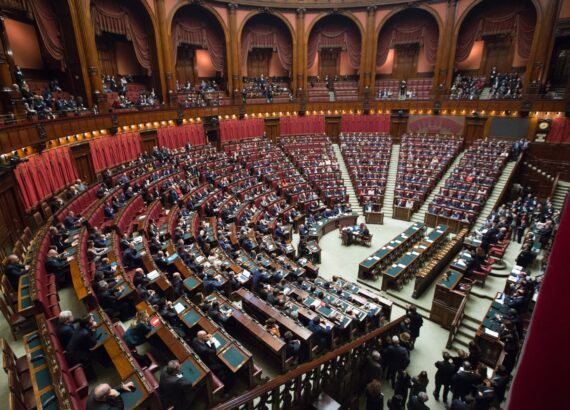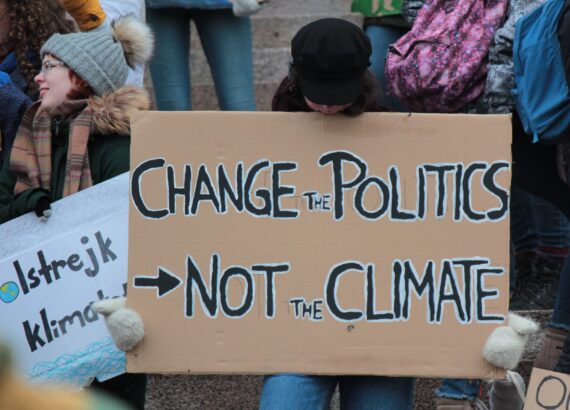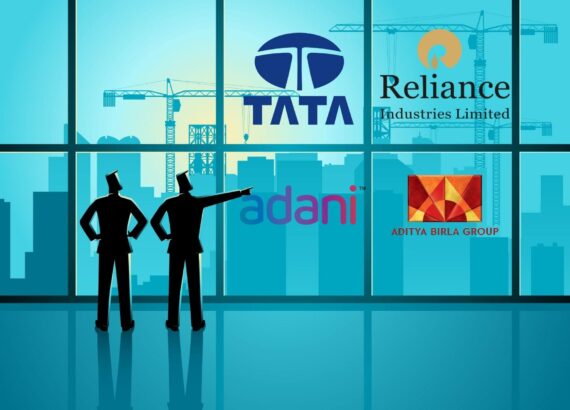Insider Reveals Jaw-Dropping Truths Behind Controversial Government Policies

Insider Reveals Jaw-Dropping Truths Behind Controversial Government Policies
The realm of government policies often appears opaque and elusive, leaving citizens wondering about the true motivations behind certain decisions. In this eye-opening article, we delve into the depths of controversial government policies, shedding light on the hidden truths that lie beneath the surface. From undisclosed agendas and secret meetings to the manipulation of public opinion through media influence, we expose the mechanisms at play.
Furthermore, we explore the far-reaching implications of these policies, including socioeconomic inequality, unintended consequences, and the courageous acts of whistleblowers who dare to reveal government secrets. Ultimately, this article calls for a reevaluation of policy-making processes and the urgent need for transparency to safeguard democratic values and empower informed citizens.
Explore the facts, myths, and misconceptions surrounding these policies, and challenge your preconceived notions. Get ready to delve into the complex world of government decision-making and uncover the truths that
1. Introduction: Unveiling the Controversial Government Policies
The Need for Transparency
Let’s face it, government policies can sometimes feel like a murky swamp that only a select few understand. And if recent controversies have taught us anything, it’s that transparency is desperately needed. We, the citizens, deserve to know what’s going on behind closed doors.
Overview of the Controversial Government Policies
So, what are these controversial government policies that are causing such a stir? From healthcare reforms to immigration restrictions, there’s no shortage of issues that have divided public opinion. These policies have been the subject of heated debates, protests, and countless news headlines. But it’s time to dig deeper and uncover the truths that lie beneath the surface.
2. Behind Closed Doors: The Hidden Agendas
The Influence of Special Interest Groups
Have you ever wondered why some government policies seem to favor certain industries or groups of people? Well, the answer often lies with special interest groups. These behind-the-scenes players wield enormous power and influence over policy-making. They whisper in the ears of politicians, secure exclusive meetings, and push their agendas at the expense of the average citizen. It’s a political game that’s been played for far too long.
Secret Meetings and Undisclosed Agreements
If you thought politics was transparent and straightforward, think again. Behind closed doors, secret meetings take place, where politicians strike deals and make decisions that affect all of us. Undisclosed agreements are made, and the public is left in the dark. It’s enough to make even the most jaded citizen raise an eyebrow. But fear not, brave reader, for we’re about to shine a light on these hidden dealings.
3. Manipulating Public Opinion: The Role of Media
Media Bias and Agenda-setting
Ah, the media – the ever-present force in shaping public opinion. Not necessarily. Media bias and agenda-setting are very real phenomena. Certain news outlets have a knack for spinning stories to fit their narratives, leaving viewers and readers with a distorted view of the truth. It’s time to separate fact from fiction and take a closer look at how the media influences our understanding of controversial government policies.
Propaganda Techniques Employed by the Government
Yes, you read that right – propaganda is not just a thing of the past. Governments still employ sneaky tactics to manipulate public opinion. From carefully crafted speeches to strategically timed press releases, propaganda techniques are in full force when it comes to controversial policies. But don’t worry, we’re here to expose these tricks and arm you with the knowledge to see through the smokescreens.
4. The Power Players: Influences and Lobbying
Corporate Lobbying and its Impact
Money talks, and corporate lobbyists know this all too well. Through generous campaign donations and persuasive lobbying efforts, corporations wield significant influence over government policies. Well, it often means that policies are shaped in favor of big business, while the little guy is left in the dust. It’s time to shine a spotlight on corporate lobbying and its impact on controversial government decisions. The Role of Political Donations in Shaping Policy
It’s no secret that political campaigns require money – and lots of it. But what happens when those campaign donations come with strings attached? The role of political donations in shaping policy cannot be overlooked. When politicians rely on the generosity of deep-pocketed donors, there’s no doubt that these financial ties may influence their decisions. It’s time to unveil the connections between money and policy-making.
So, buckle up and get ready for the jaw-dropping truths behind these controversial government policies. It’s time to navigate the maze of hidden agendas, media manipulation, and power players, all with a healthy dose of wit and a commitment to uncovering the truth.
5. Inequality Unveiled: Socioeconomic Implications
Disproportionate Impact on Marginalized Communities
It’s no secret that government policies can have far-reaching effects on society. Unfortunately, some policies have a disproportionate impact on marginalized communities. These communities, already facing systemic disadvantages, bear the brunt of policies that perpetuate inequality. From housing to education to access to healthcare, marginalized communities often find themselves on the losing end of these policies. It’s crucial to shine a light on these disparities and work towards creating a more equitable society.
Widening Wealth Gap and its Consequences
As controversial government policies unfold, one of the most alarming consequences is the widening wealth gap. While the rich get richer, the gap between the haves and the have-nots continues to grow. This economic disparity not only exacerbates existing inequalities but also poses a threat to social stability. With limited access to resources and opportunities, those struggling to keep up often face higher rates of poverty, lower social mobility, and diminished quality of life. Addressing this wealth gap should be a priority if we want to build a sustainable and inclusive society.
6. Unintended Consequences: Unveiling the Fallout of Policies
Economic Instability and Unemployment
When it comes to government policies, there’s a nagging question: do they always deliver the intended results? Unfortunately, the answer is often no. Policies, no matter how well-intentioned they may be, can sometimes create unintended consequences. Take, for example, the issue of economic stability and unemployment. Ill-conceived policies can disrupt industries, drive businesses to closure, and leave workers unemployed. Policymakers need to consider all potential ramifications to avoid inadvertently harming the very people they aim to help.
Environmental Degradation and Health Issues
Another area where government policies sometimes fall short is in addressing environmental degradation and health issues. While efforts to promote economic growth are necessary, they should not come at the expense of our planet and well-being. Policies that prioritize short-term gains over long-term sustainability often lead to increased pollution, habitat destruction, and adverse health effects. Recognizing the interconnectedness of our environment and our health is crucial in developing policies that protect both.

7. Whistleblower Exposé: Shedding Light on Government Secrets
Voices from Within: Testimonies and Revelations
Now and then, brave individuals within the government come forward as whistleblowers, shedding light on the secrets kept behind closed doors. These whistleblowers provide invaluable insights and evidence of wrongdoing, exposing corruption, unethical practices, and hidden agendas. Their testimonies and revelations allow the public to hold those in power accountable, encouraging transparency and good governance.
Legal and Ethical Implications of Whistleblowing
While whistleblowers play a vital role in uncovering the truth, their actions come with legal and ethical implications. Whistleblowing often leads to personal and professional repercussions for these individuals. The legal frameworks surrounding whistleblowing need to be strengthened to protect those who speak out against government misconduct. Additionally, the ethical considerations of whistleblowing deserve careful examination, as it raises questions about loyalty, patriotism, and the greater good.
8. Moving Forward: Rethinking Policy-making and Transparency
The Need for More Open Governance
To prevent controversies and the negative impact of policies, it’s crucial to prioritize open governance. This means involving citizens in decision-making processes and ensuring transparency at every step. By giving people a voice in policy discussions, governments can develop a better understanding of the diverse needs of their citizens. Open governance not only promotes accountability but also strengthens public trust in the system.
Promoting Accountability and Citizen Engagement
Lastly, it’s essential to promote accountability and citizen engagement in policy-making. Governments must be willing to be held accountable for their actions, ensuring that policies align with the best interests of the people. Governments can benefit from a more diverse range of opinions and perspectives by actively engaging citizens in the decision-making process. This fosters a sense of ownership and empowerment among the public, ultimately leading to policies that better serve the collective good.
Let’s strive for a future where government policies are carefully crafted, transparent, and accountable, leaving no room for controversy or hidden agendas. With a commitment to inclusivity, sustainability, and the well-being of all citizens, we can navigate the challenges of governance and build a brighter future for everyone.
Conclusion
In a world where government policies shape the lives of millions, we must go beyond the surface and uncover the truths behind them. By exposing the hidden agendas, media manipulation, and power dynamics at play, we equip ourselves with the knowledge to question and challenge controversial policies. Only through transparency, accountability, and citizen engagement can we strive towards a more just and equitable society. Let this exploration serve as a call to action, compelling us to demand open governance and ensure that the decisions shaping our lives are rooted in truth, fairness, and the common good.
FAQ
1. Are these controversial government policies specific to a particular country?
No, the article examines controversial government policies globally. While examples may be provided from specific countries, the focus is on the underlying mechanisms and patterns that can be observed across different nations.
2. How were the truths behind these policies uncovered?
The truths behind these policies have been revealed through investigative journalism, whistleblower testimonies, research studies, and analysis of public records and documents. The article aims to present a comprehensive view of the controversies by drawing upon credible sources to support its claims.
3. What can I do as an individual to address these issues?
As an individual, you can play a crucial role by staying informed, engaging in critical thinking, and actively participating in the democratic process. Educate yourself about policies and their potential impacts, question information presented by the media, and voice your concerns to elected representatives. Support organizations and initiatives that advocate for transparency, accountability, and citizen empowerment.
4. Are there any proposed solutions to address the problems highlighted in the article?
Yes, the article concludes by calling for a reevaluation of policy-making processes and the urgent need for transparency. It emphasizes the importance of promoting accountability, citizen engagement, and open governance to mitigate the negative consequences of controversial policies. By fostering an environment of dialogue, inclusivity, and public participation, we can strive towards policy decisions that are more aligned with the needs and aspirations of the people.
Thank you for reading 🙂












